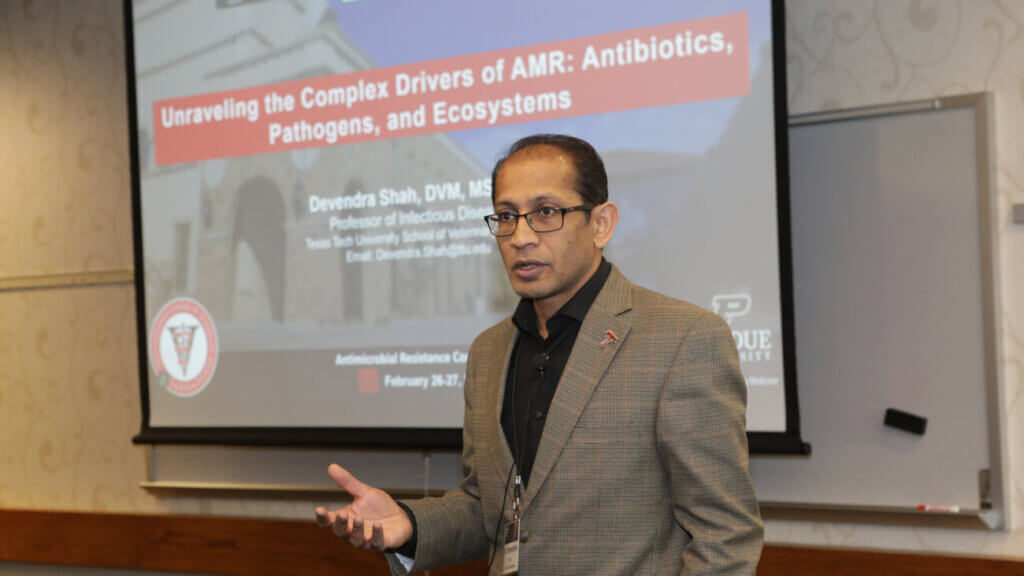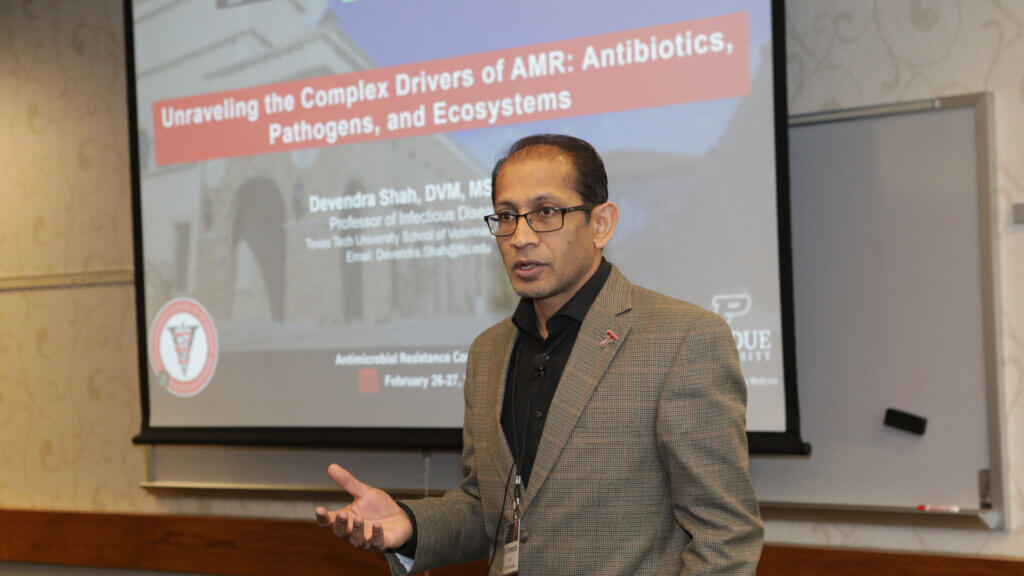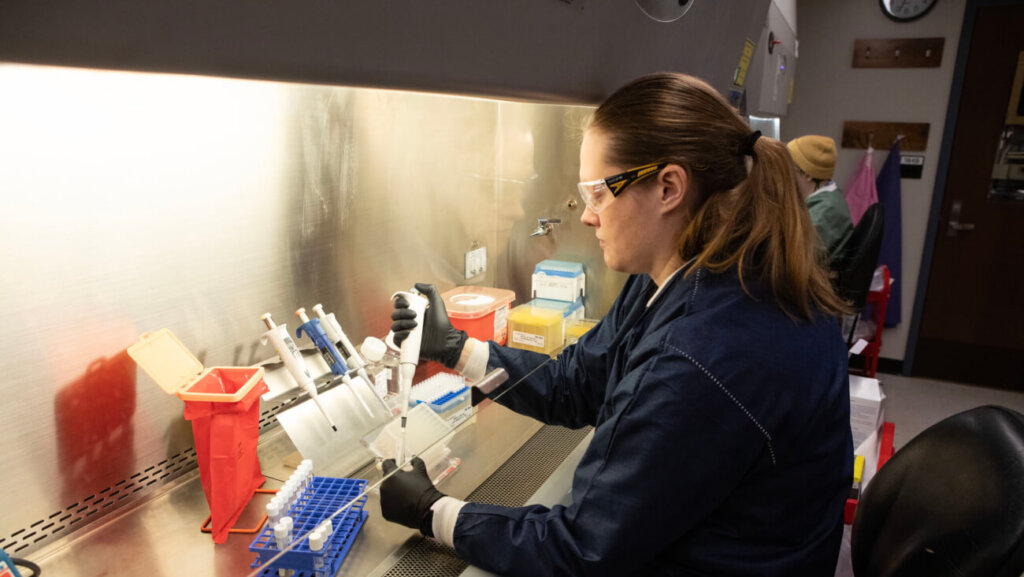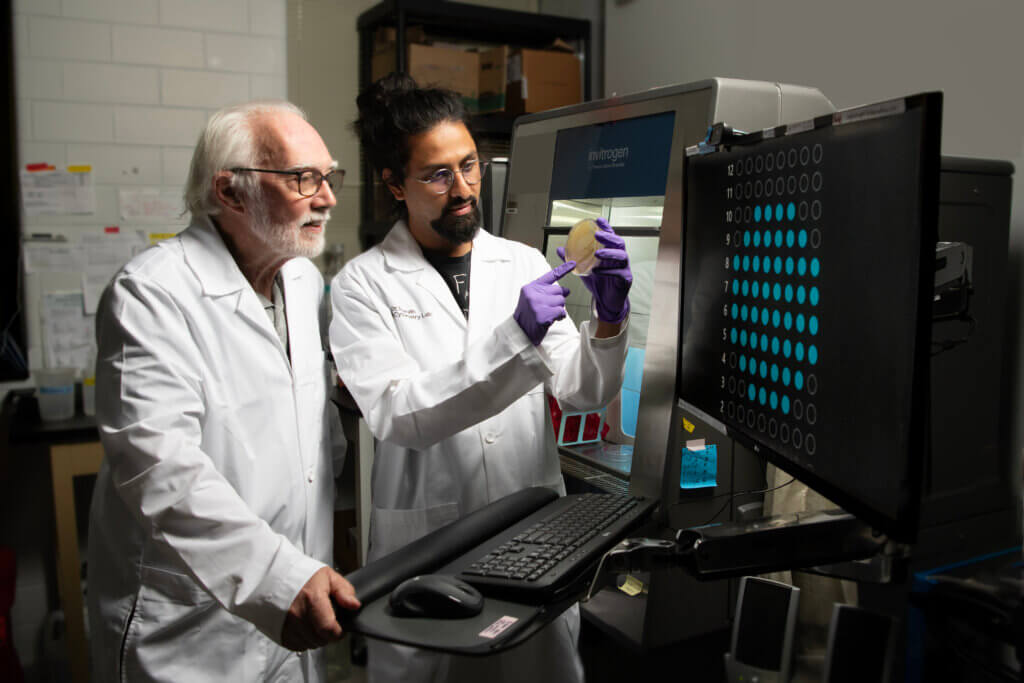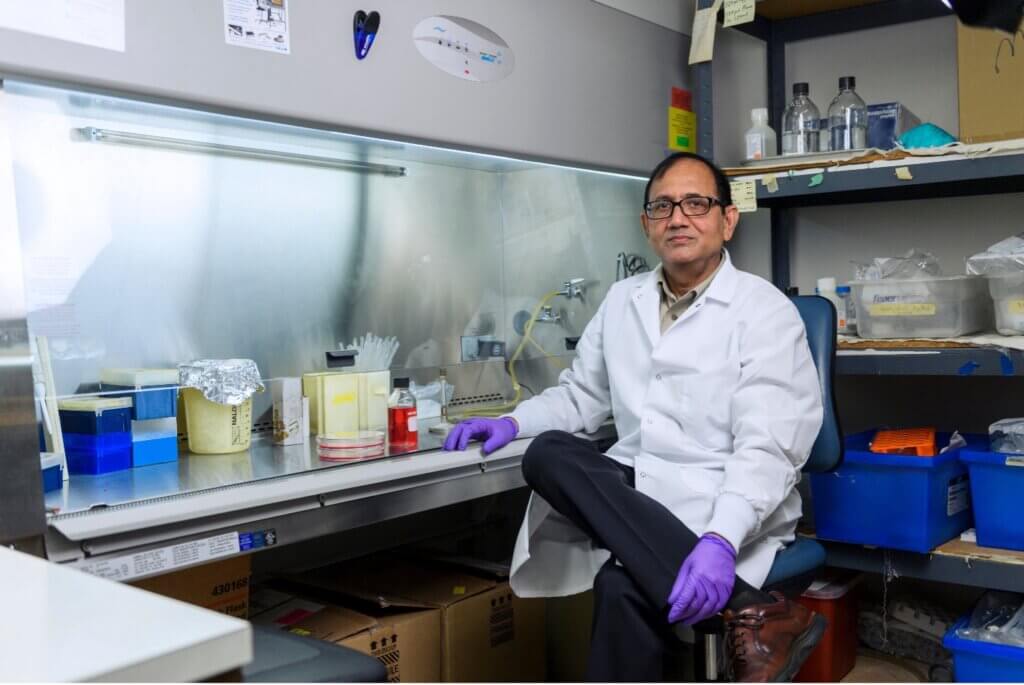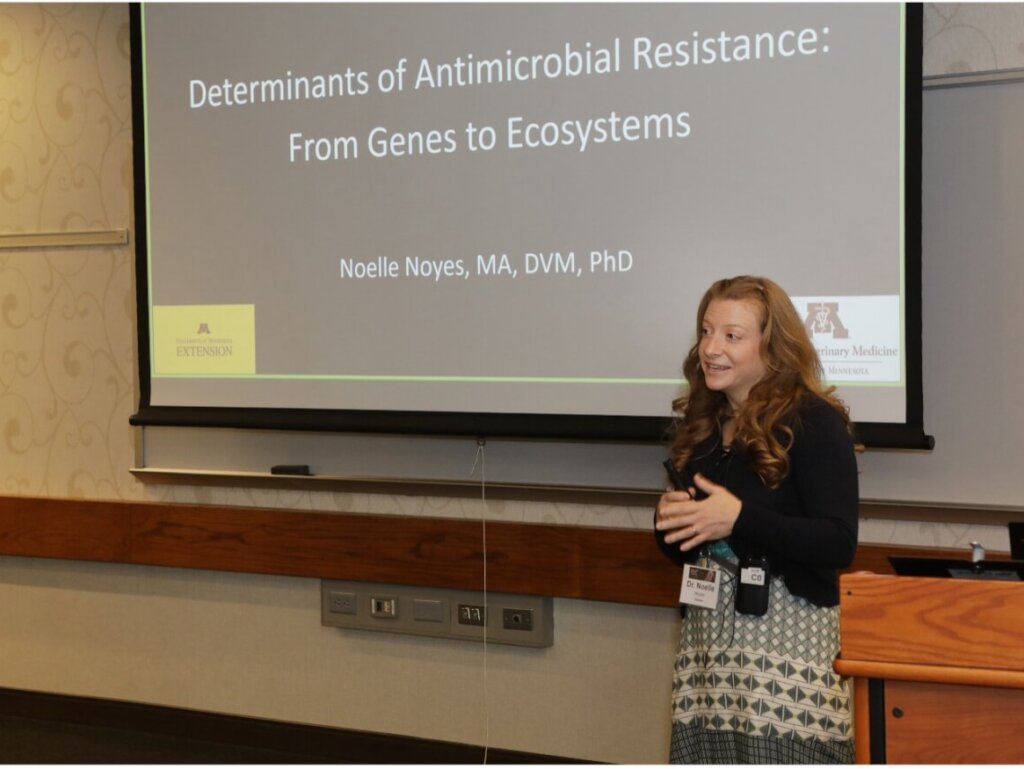Infectious Diseases and Immunology
Purdue to Host Fourth Annual Antimicrobial Conference in February
December 5, 2025
With leadership by the Purdue University College of Veterinary Medicine, the Fourth Annual Conference on Antimicrobial Resistance (AMR) will be held at Purdue University West Lafayette February 25–26, 2026. With multidrug-resistant infections on the rise globally, this event brings together experts and practitioners across the spectrum of human, animal, and environmental health to address one of today’s most urgent public health challenges.
Third Antimicrobial Resistance Conference Brings Interdisciplinary Scholars Together at Purdue
July 25, 2025
Attendance figures for Purdue University’s third Antimicrobial Resistance Conference demonstrate increasing interest in the event’s interdisciplinary approach to the topic that the World Health Organization (WHO) identifies as one of the top global public health and development threats. The conference last month at Purdue’s Stewart Center featured distinguished keynote speakers and Purdue scholars from a variety of disciplines who shared the latest research findings and insights regarding the challenges posed by antibiotic resistance.
Disease Detectives: PVM Scientists Help State Officials Battle Against Avian Influenza
July 25, 2025
On the south end of Purdue University’s West Lafayette campus during the spring semester, a critical battle unfolded inside the Willie M. Reed Animal Disease Diagnostic Laboratory – a high-stakes hub where veterinary diagnostic experts served as disease detectives and every sample was a potential clue in stopping an outbreak of highly pathogenic avian influenza (HPAI) on Indiana farms.
PVM Distinguished Professor Suresh Mittal to Speak at Purdue’s Westwood Lecture Series
January 17, 2025
The Westwood Lecture Series is part of Purdue President Mung Chiang’s efforts aimed at enhancing the intellectual vibrancy of the Purdue West Lafayette campus, and the next featured speaker is Purdue Veterinary Medicine’s Distinguished Professor of Virology, Dr. Suresh Mittal. His presentation entitled, “Universal Influenza Vaccine — An Aspiration or Reality?” is scheduled for January 28, and registration for the lecture is now open.
Building on Scholarly Excellence, Veterinary Medicine Postdoc Researcher Pursues Solutions to Global Crisis in Countering Antibiotic Resistance, Superbugs
October 18, 2024
Years of growing resistance to antibiotics have sparked an urgent global health crisis, giving rise to challenging biological threats and the emergence of more dangerous viral, fungal and bacterial strains, commonly called superbugs. Compounding the threat is the difficulty in a quick diagnosis, complicating how to effectively treat these illnesses. Purdue postdoctoral researcher Sharath Iyengar in the College of Veterinary Medicine’s Department of Basic Medical Sciences spends hours in the G221 laboratory at Lynn Hall, seeking answers to this health challenge.
Purdue University Recognizes World Parkinson’s Day by Highlighting Research Led by PVM Scholar
April 12, 2024
World Parkinson’s Day is an annual global healthcare event to recognize the cultural, economic, and social impact of Parkinson’s disease. In recognition of the day, Purdue University spotlighted research by Dr. Jessica Fortin, assistant professor of basic medical sciences, physiology and pharmacology in the College of Veterinary Medicine’s Department of Basic Medical Sciences.
Cracking the Code on a Universal Flu Vaccine
March 8, 2024
Promising initial research could lead to more effective seasonal flu shots and ward against future pandemics.
Second Antimicrobial Resistance Conference at Purdue Draws Expanded Audience
March 8, 2024
Attendance figures for Purdue University’s second Antimicrobial Resistance Conference demonstrated increasing interest in the event’s interdisciplinary approach to the topic that the World Health Organization (WHO) identifies as one of the top global public health and development threats.
Purdue University to Host Second Conference on Antimicrobial Resistance
January 26, 2024
Combatting the threat of Antimicrobial Resistance (AMR) will be the focus of a two-day conference next month on Purdue University’s West Lafayette campus. Organized by faculty and staff in the College of Veterinary Medicine with additional support from the Colleges of Agriculture, Pharmacy, Engineering, and Science, the event February 27-28 will feature speakers from multiple disciplines.
Emerging Drug-Resistant Fungal Pathogen Research Targets Urgent Health Threat
December 15, 2023
A new $2.4 million grant from the National Institutes of Health (NIH) will fund research led by a faculty member in the College of Veterinary Medicine’s Department of Comparative Pathobiology aimed at shedding light on a significant new health threat that involves an emerging multi-drug-resistant fungal pathogen. Dr. Shankar Thangamani, assistant professor of microbiology, is studying Candida auris, which he says predominately causes skin infections and has been classified as an urgent threat by the U.S. Centers for Disease Control and Prevention (CDC) Antibiotic Threats Report (2019).

